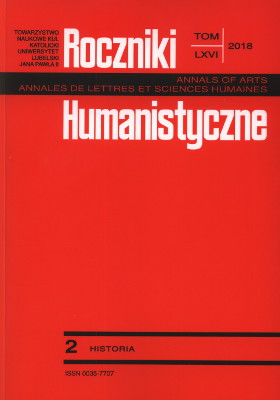Interesy narodowe w genezie Europejskiej Wspólnoty Węgla i Stali
National Interests in the Origin of the European Coal and Steel Community
Author(s): Andrzej MadejaSubject(s): History, Recent History (1900 till today), Post-War period (1950 - 1989)
Published by: Towarzystwo Naukowe KUL & Katolicki Uniwersytet Lubelski Jana Pawła II
Keywords: Schuman Plan; European Coal and Steel Community; Treaty of Paris; member states; national interests; intergovernmentalism; European integration
Summary/Abstract: The creation of the European Coal and Steel Community (ECSC) was an unprecedented event. The recognition of the specific features of the new structure requires an analysis of the premises that led to its creation. Particularly noteworthy are the motives behind the decisions of the six original signatory states to the Treaty. The post-war condition of Europe was determined by three factors: a very difficult economic and demographic situation the political and military domination of the United States and threat posed by the Soviet Union. As a result, West European states could not disregard American expectations, which was one of the fundamental conditions for the policy of their governments. This article presents the perspectives of each of the six countries participating in the negotiations of the Treaty. For France, the Schuman Plan was a tool for the implementation of post-war priorities, especially for securing the country against another German aggression. By contrast, the Germans saw in the ECSC project an opportunity to return to the group of full-fledged members of the international community and regain independence in the field of economic policy. The same was true of Italy, which, however, expected support for its economy. The Benelux countries were afraid of the domination of the “big states”, but they were fully aware that there was no alternative to the participation in the Plan. It should be noted that there were very serious discrepancies in the economic interests of the six countries. This problem was solved through the introduction of numerous concessions to the Treaty, providing countries with a derogation from general rules. This made the Schuman Plan and the ECSC a primarily political venture, under which the governments saw the possibility of pursuing their national interests using a new measure – a supranational principle and an organization based on it, called the Community.
Journal: Roczniki Humanistyczne
- Issue Year: 66/2018
- Issue No: 2
- Page Range: 161-184
- Page Count: 24
- Language: Polish

